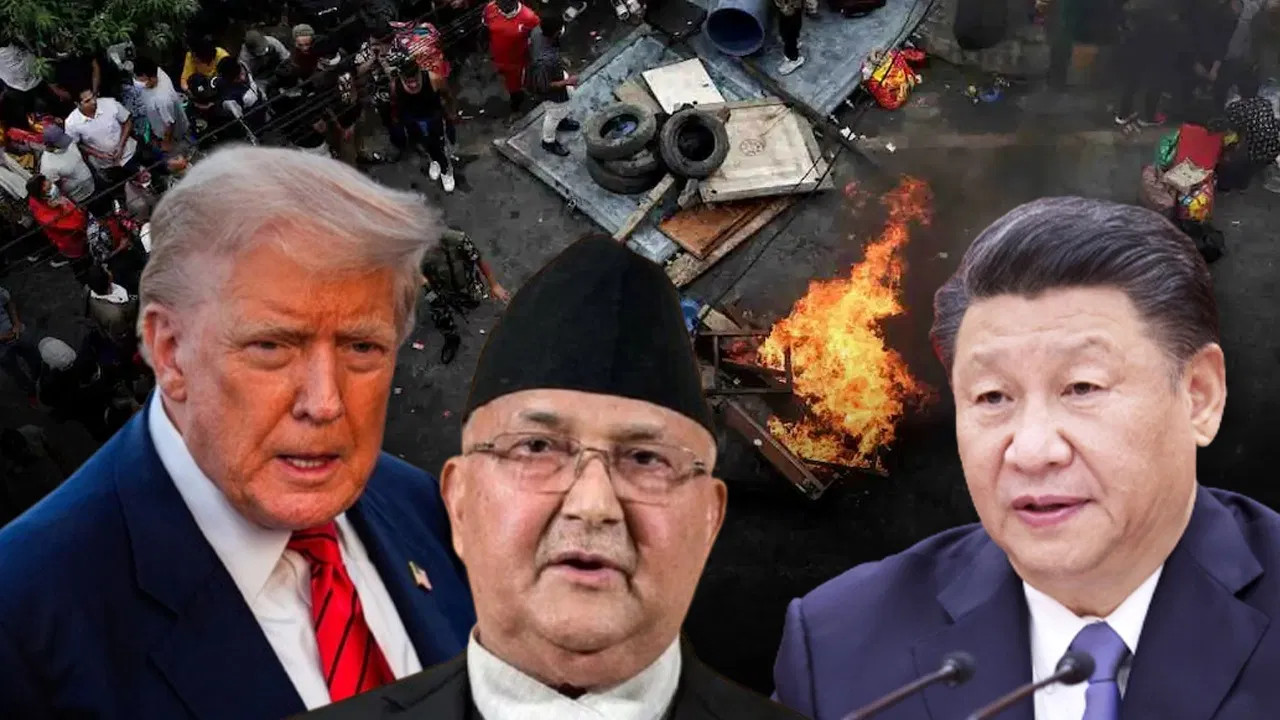
How the U.S. Scored a Major Win Over China From 12,000 KM Away (Image Source: Social Media )
A short, two-day youth movement in Nepal has forced former Prime Minister KP Oli out of power, sending ripples far beyond the country. Oli, long seen as China’s closest ally in Nepal, had strengthened ties with Beijing, supporting its Belt and Road Initiative and even attending China’s Victory Day parade. His sudden removal is being seen as a strategic win for the U.S., signaling a shift in Nepal’s politics and its delicate balance between India and China.
According to media reports, the U.S. revived the Millennium Challenge Compact (MCC) in Nepal this year. This project, with assistance of around $500 million, aims to strengthen energy and road infrastructure. It was seen as a direct counter-project to China’s “Belt and Road.” Analysts therefore say that the anger and movement against Oli could have involved a significant role of the U.S. Currently, Oli is out, and the responsibility of interim Prime Minister is being taken over by Sushila Karki. Karki has good relations with India; she studied at Banaras Hindu University and has expressed gratitude by mentioning Prime Minister Modi. It is clear that Nepal’s politics now seem to be moving slightly away from China and closer to India and the U.S.
A few years ago, tensions arose in India-U.S. relations due to tariff disputes. But the situation is changing now. Conversations between Prime Minister Narendra Modi and U.S. leadership are increasing. U.S. representatives may visit India next week, potentially including deals related to F-8I aircraft. In the coming days, if some clarity also emerges regarding tariffs, India-U.S. relations could return to normal. This means pressure on China. Because if there is a power in Asia that can challenge China, it is India. The U.S. understands this well, which is why it is working to improve relations with the Modi government.
Pakistan has long been China’s biggest partner. Whether in economic aid or defense deals, Beijing has always stood with Islamabad. But Pakistan’s own political and economic troubles have changed the situation. U.S. President Donald Trump, during his second term, has appeared particularly favorable toward Pakistan. Recently, the Pakistani Army Chief had dinner with the U.S. President at the White House. This is not a small gesture. It clearly shows that the U.S. is working to pull even China’s most trusted ally to its side.





Copyright © 2026 Top Indian News
